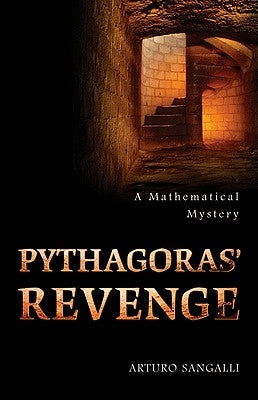Princeton University Press
Pythagoras' Revenge: A Mathematical Mystery
Pythagoras' Revenge: A Mathematical Mystery
Couldn't load pickup availability
The celebrated mathematician and philosopher Pythagoras left no writings. But what if he had and the manuscript was never found? Where would it be located? And what information would it reveal? These questions are the inspiration for the mathematical mystery novel Pythagoras' Revenge. Suspenseful and instructive, Pythagoras' Revenge weaves fact, fiction, mathematics, computer science, and ancient history into a surprising and sophisticated thriller.
The intrigue begins when Jule Davidson, a young American mathematician who trolls the internet for difficult math riddles and stumbles upon a neo-Pythagorean sect searching for the promised reincarnation of Pythagoras. Across the ocean, Elmer Galway, a professor of classical history at Oxford, discovers an Arabic manuscript hinting at the existence of an ancient scroll--possibly left by Pythagoras himself. Unknown to one another, Jule and Elmer each have information that the other requires and, as they race to solve the philosophical and mathematical puzzles set before them, their paths ultimately collide. Set in 1998 with flashbacks to classical Greece, Pythagoras' Revenge investigates the confrontation between opposing views of mathematics and reality, and explores ideas from both early and cutting-edge mathematics. From academic Oxford to suburban Chicago and historic Rome, Pythagoras' Revenge is a sophisticated thriller that will grip readers from beginning to surprising end.Author: Arturo Sangalli
Publisher: Princeton University Press
Published: 07/25/2011
Pages: 208
Binding Type: Paperback
Weight: 0.61lbs
Size: 8.49h x 5.45w x 0.94d
ISBN: 9780691150192
About the Author
Arturo Sangalli is a freelance science journalist and writer. He has a PhD in mathematics from the University of Montreal. He is the author of The Importance of Being Fuzzy: And Other Insights from the Border between Math and Computers (Princeton) and has contributed many pieces to New Scientist.
Share


